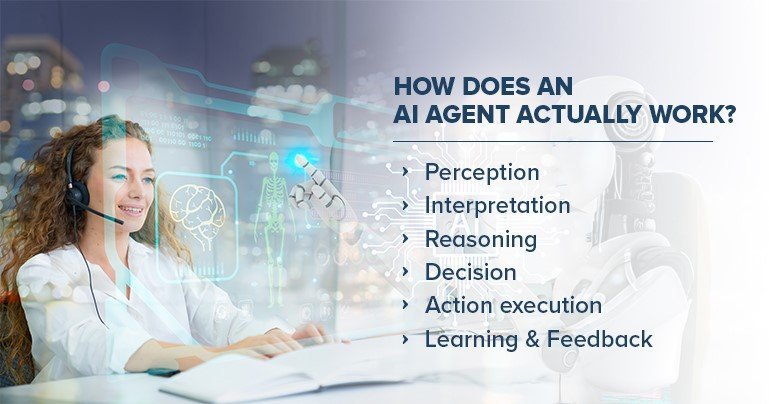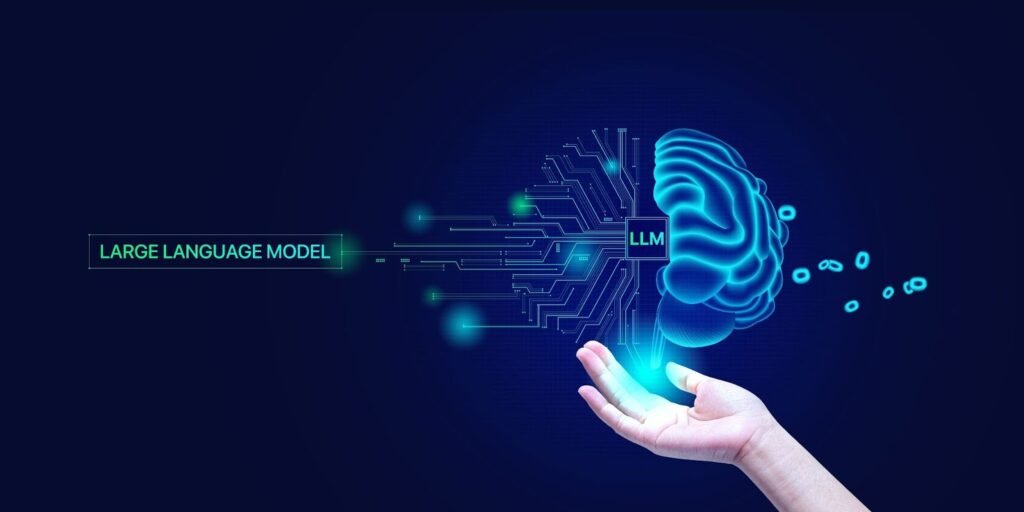What Are AI Agents? How They Work and Why They Matter
Transform your operations with AI Agents - improve efficiency, reduce manual effort, and enhance decision-making accuracy. Schedule a free consultation now!
14 +
Years of Experience
550 +
Happy Customers
250 +
Years of Tech Leadership Exp.

"License Reseller" and "Consulting & Implementation" Partner

TL;DR
- AI agents are autonomous systems that perceive, reason, and act to achieve business goals across ITSM, HR, and customer service.
- They automate repetitive tasks, enhance decision-making, improve customer experience, and ensure compliance through detailed logging.
- Different agent types—reflex, goal-based, utility, and learning—support varied complexity levels, from simple triggers to adaptive decision-making.
- ServiceNow-powered AI agents, implemented by DevTools, deliver intelligent automation with audit-ready governance and measurable ROI.
Have you ever wondered how AI agents are transforming core business functions such as IT Service Management (ITSM), human resources, and customer care? These intelligent systems can not only execute assigned tasks but also make decisions based on outcomes, handle recurring processes with precision, and continuously adapt to evolving requirements.
Drawing on our hands-on experience with enterprise platforms like ServiceNow, we have seen how AI agents improve efficiency, reduce manual effort, and enhance decision-making accuracy. In this blog, we will break down what AI agents are, how they work, and why forward-thinking teams, including ours at DevTools, rely on them to drive results. We will explore foundational concepts such as knowledge bases, simple reflex agents, utility-based agents, and machine learning, while ensuring the explanations remain clear, practical, and easy to skim for busy professionals.
What are AI agents?
An AI agent is an autonomous software entity designed to perceive its environment, process information based on a defined knowledge base, and take actions to achieve specific goals. Depending on their complexity, AI agents can range from simple reflex-based bots that respond to predefined triggers, to learning agents that evolve and improve through machine learning.
In practice, AI agents can be action-based, goal-based, or utility-based systems. They are widely used to perform tasks and add value in areas such as customer experience, IT operations, and business process automation. With the right design and training, they not only execute instructions but also make context-aware decisions that improve over time — delivering measurable business outcomes.
Why are AI Agents important today?
AI agents are transforming how modern businesses operate by enabling intelligent automation, round-the-clock responsiveness, and the optimization of both internal processes and customer-facing operations. In today’s digital-first environment, they stand out as a vital tool — capable of thinking, deciding, and acting in real time.
Key capabilities of AI agents include:
- Automating repetitive tasks such as ticket routing or invoice processing.
- Delivering real-time issue resolution and executing decision-based actions.
- Freeing human talent to focus on complex, creative, and strategic work.
- Enhancing customer experience through consistent 24/7 service availability.
- Providing audit-friendly logs that can be referenced during compliance reviews or regulatory inquiries.
In sectors like ITSM, especially when powered by platforms such as ServiceNow, these capabilities are critical. AI agents can proactively detect incidents, open tickets, suggest fixes, and even supply auditors with relevant knowledge base links — ensuring faster resolution and easier compliance.
Pro Tip: When deploying AI agents in ITSM, integrate them with a robust knowledge base and incident management workflow. This maximizes both automation efficiency and audit readiness.
How does an AI agent work? (Step-by-step process)

An AI agent follows a systematic cognitive loop that starts with receiving inputs, interpreting them, choosing a course of action, executing that action, and learning from the outcome. This loop enables continuous delivery of value and adaptability.
- Perception: Collects information through APIs, sensors, events, or chat interfaces.
- Interpretation: Analyzes incoming data, for example, a ticket to reset a password.
- Reasoning: Applies rules or logic using one of several paradigms, such as simple reflex (if–then), model-based reflex, goal-based reasoning, or utility-based reasoning.
- Decision: Selects the best course of action based on predefined goals or utility.
- Action execution: Triggers workflows, automates real-time fixes, calls CI/CD pipelines, or sends responses.
- Learning and feedback: Identifies new patterns and improves future decisions through machine learning.
Pro Tip: For reliable outcomes, pair this loop with clear success metrics, audit logs, and human-in-the-loop checks for high-impact actions. This preserves control, supports compliance, and builds trust in production environments.
What are the Different Types of AI Agents Used in Businesses?
AI agents can range from basic rule-based responders to advanced adaptive systems that learn, plan, and optimize. The type of agent a business deploys depends on the nature of the task, the complexity of the environment, and the desired outcomes.
- Simple Reflex Agents – Operate on condition–action rules, making them ideal for predictable, repetitive tasks with clearly defined triggers.
- Model-Based Reflex Agents – Maintain an internal state that allows them to make more informed and immediate responses based on context.
- Goal-Based Agents – Plan and execute steps toward a specific goal, such as processing a complete HR onboarding request.
- Utility-Based Agents – Evaluate and optimize between multiple possible outcomes, balancing factors like cost, performance, and time.
- Learning Agents – Leverage machine learning to continuously improve performance, adapt to evolving tasks, and handle increasingly complex situations.
- Hybrid or Multi-Agent Systems – Combine multiple agent types to handle complex workflows that require diverse capabilities and decision-making styles.
Specialized agents in ITSM, HR, and customer service
Agentic AI is already revolutionizing key business functions by tailoring agents for domain-specific needs. These specialized agents combine knowledge, logic, and automation to deliver targeted outcomes.
- ITSM agents (e.g., ServiceNow Virtual Agent): integrate with knowledge base, trigger CI/CD in Azure Pipelines, escalate incidents.
- HR onboarding agents: automate repetitive tasks, gather customer data, and recommend training.
- Customer service agents: chatbots that enhance customer experience, pull from CRM, and escalate to humans only when needed
These agents optimize across tasks, whether decision-based or action-based, and improve customer experience in real time.
What are the key components of an AI agent system?
For AI agents to operate effectively, they depend on a modular system architecture that supports sensing, decision-making, learning, and safe execution. Each component plays a critical role in ensuring reliability, adaptability, and compliance.
- Knowledge Base: A repository of domain-specific information, rules, policies, and FAQs that the agent uses for informed decision-making.
- Perception Module: Collects inputs from APIs, chat interfaces, sensors, or other event sources to understand the current environment.
- Reasoning Engine: Applies reflex, goal-based, or utility-based logic to determine the best course of action.
- Learning Component: Uses data and feedback loops to enhance performance over time (in learning agents), enabling adaptation to evolving situations.
- Action Modules: Connect to workflows, systems, and tools to execute the chosen actions effectively.
- Monitoring & Logging: Tracks all agent activities for analysis, real-time error detection, and compliance purposes — a critical feature for audits and regulatory reviews.
What are the main benefits of using an AI agent?
Automating tasks
They tackle repetitive actions, ticket routing, data entry, and document processing, freeing team members to focus on more complex work.
Enhancing decision-making
Combined with machine learning, agents analyze data and make utility-based decisions in milliseconds, ideal for dynamic environments.
Improving user experience
Agents deliver consistent, speedy responses to customers or internal users; they do background checks, find answers in the knowledge base, and personalize interactions.
Boosting productivity & reducing costs
They scale effortlessly, operate 24/7, and reduce human error. As AI agents improve over time, your ROI grows.
Compliance & transparency
Every action logged in real time helps point to the solution for auditors or regulators, reducing compliance headaches.
Other benefits:
- Lower time-to-resolution for IT issues.
- In HR, smoother onboarding with no manual follow-ups.
- In service, faster queries and higher satisfaction.
Where are AI Agents Used Today?
AI agents are now deeply embedded across industries, streamlining processes, improving decision-making, and enhancing user experiences. Some key applications include:
- Customer Support: Tools like ServiceNow Now Assist power AI-driven chatbots and virtual agents that resolve queries instantly and provide 24/7 assistance.
- IT Service Management (ITSM): Ticket triaging, incident detection, and remediation bots integrated into ServiceNow workflows help speed resolution and reduce manual workload.
- Human Resources (HR): AI agents handle candidate screening, automate onboarding processes, and manage benefits administration with accuracy and speed.
- DevOps: Coding agents commit fixes, trigger CI/CD pipelines in Azure Pipelines, and enforce quality standards via Jenkins, GitHub Actions, and GitLab CI — often with built-in code quality checks.
- Finance: Smart assistants prepare financial reports, support audits, and detect fraud through pattern recognition and anomaly detection.
- E-Commerce: AI-powered purchase agents, chatbots, and inventory tracking systems optimize buying experiences and supply chain efficiency.
What are the risks and challenges of AI agents?
While AI agents offer significant benefits, their adoption also comes with risks and challenges that organizations must address to ensure safe, ethical, and reliable deployment:
- Reliability: Even advanced AI agents can make errors or fail during complex tasks, making human supervision essential for critical operations.
- Ethical Issues: Risks include algorithmic bias, lack of accountability, and potential misuse, all of which can undermine trust and fairness.
- Security: AI agents often process sensitive customer or business data, requiring strict access controls, encryption, and compliance measures.
- Job Displacement: Automation can replace certain junior or repetitive roles, potentially impacting career development pipelines and workforce morale.
- Complexity: Hybrid or multi-agent systems require careful orchestration, ongoing maintenance, and clear governance to avoid operational conflicts.
What are the best practices for implementing an AI agent?
Successful AI agent deployment requires a thoughtful, phased approach that balances innovation with control. Key best practices include:
- Start Small: Begin by automating simple, repetitive tasks to achieve quick wins and build trust in the system.
- Leverage Existing Knowledge Bases: Use resources such as FAQs, IT policies, and process documentation to accelerate agent effectiveness.
- Select the Right Agent Type: Choose between reflex-based, goal-based, utility-based, or learning agents based on the task complexity and desired outcomes.
- Integrate with Existing Pipelines: Connect agents to workflows in Jenkins, GitHub Actions, GitLab CI/CD, Azure Pipelines, and other automation tools for seamless operations.
- Log All Activities: Maintain detailed logs for troubleshooting, audits, and regulatory reporting to ensure transparency and compliance.
- Include Human Oversight: Monitor agent actions through alerts and dashboards, especially for high-impact processes.
- Iterate and Improve: Continuously refine logic, introduce machine learning, and add AI loops to enhance performance over time.
- Govern Usage: Implement strict data access controls, define ethical guidelines, and ensure agents operate within approved boundaries.
Pro Tip: Pair each AI agent initiative with clearly defined KPIs. This allows you to measure effectiveness, justify investment, and identify areas for further optimization.
How is an AI agent different from chatbots, LLMs, and copilots?

While chatbots, large language models (LLMs), and copilots are all valuable AI-powered tools, they differ significantly from AI agents in scope and capability:
- Chatbots: Primarily respond to user queries but lack autonomous decision-making or the ability to perform tasks proactively.
- LLMs (Large Language Models): Tools like ChatGPT can generate high-quality text but have no built-in connection to real-world actions, systems, or pipelines.
- Copilots: Examples such as coding copilots assist developers inside IDEs by suggesting code, but still require the human developer to execute changes.
- AI Agents: Combine perception, reasoning, action, and often learning in a single framework. They integrate directly with tools, platforms, and workflows to perform end-to-end tasks autonomously — from detecting issues to executing solutions in real-world environments.
What are some real examples of AI agents in action?
AI agents are already delivering measurable impact across industries by automating workflows, improving efficiency, and enabling faster decision-making. Examples include:
- IT Service Management (ITSM): The ServiceNow Virtual Agent detects incidents through monitoring, automatically logs tickets, suggests fixes, and escalates to human support when necessary.
- DevOps: Coding agents review pull requests, recommend changes, merge code, and trigger CI/CD workflows through Azure Pipelines, Bitbucket, Jenkins, or GitLab, automating tasks from build to deployment.
- Sales: SDR (Sales Development Representative) agents proactively contact leads, schedule meetings, and update CRM systems without manual intervention.
- Finance: The Hebbia agent builds valuation models and drafts memos with an accuracy and efficiency comparable to that of a junior analyst.
- Office Automation: Microsoft’s AI-powered agents manage scheduling, handle emails, and process reimbursements 24/7, streamlining administrative operations.
What is the future of AI agents in business and technology?
AI agents are on the way to becoming a basic element in the way enterprises operate, interact, and innovate. Their intelligence, their autonomy, and their connectivity are increasing, and so will their impact on efficiencies and changes in the business.
- Greater acceptance: Anticipated to increase to several billion dollars by 2030; ~33 percent of enterprise applications will involve the use of agents in 2028.
- Multi-agent systems: Agents that collaborate to do end to end complex tasks.
- Greater Integration: With IoT, edge computing, blockchain, etc.
- Improved autonomy: Agent-based workflows self-govern:
- Upskilling human beings: Positioning of the Supervisory AI to avoid being replaced and promote ethical utilization.
About ServiceNow AI Agents
ServiceNow embeds agentic intelligence deep into the enterprise fabric, enabling powerful automation, insight, and action across business functions—all with enterprise-grade reliability and compliance.
- Virtual Agent: A goal-based conversational agent on the Service Portal.
- Now Assist: Pulls from the knowledge base to perform tasks, make real-time suggestions, and triage issues.
- Agents enforce workflows, call an API, integrate with CI/CD, and can kick off machine learning powered decision flows.
ServiceNow AI agents are engineered for high compliance and audit-readiness, with built-in logging and proof trails.
How can DevTools help you implement ServiceNow AI agents?
DevTools is your end-to-end ServiceNow partner for unlocking the full power of ServiceNow AI agents, from strategy to deployment, and beyond. We bring deep technical expertise and a track record of transforming workflows across industries.
- Assessment & Strategy: Identifying where AI agents can drive ROI.
- Integration: Hooking agents into ServiceNow along with Jenkins, GitHub Actions, GitLab CI, or Azure Pipelines.
- Designing agent logic: Selecting reflex, goal, utility, and learning agents based on need.
- Configuring knowledge base sourcing for audits and regulated use.
- Monitoring & Governance: Real-time dashboards and logs for auditors.
- Training & adoption: Enabling teams to work effectively with agents.
We’ve empowered clients to transform their ITSM, HR onboarding, customer support, and DevOps processes, and they’re now saving weeks of manual effort each month.
Contact DevTools today to start your AI agent journey.
Conclusion
AI agents are the evolution of automation, intelligent, autonomous, and capable of making decisions based on goals, utility, or learned experience. Whether they’re Simple reflex agents tackling repetitive tasks or learning agents evolving over time, they’re reshaping how businesses operate. Integrated into tools like ServiceNow, they enhance workflows, improve customer experience, and provide an audit-friendly trail. At DevTools, we help you select, implement, and govern AI agents wisely, enabling you to achieve ROI and remain compliant. Let’s start building your next-gen AI agent solution.
FAQs
What is an AI agent?
An autonomous software system that perceives its environment, reasons (using rules, goals, utility, or learned data), and acts to achieve specific goals—often within a knowledge base context.
What do AI agents do?
They automate repetitive tasks, aid with decision-making, improve customer experience, log actions for compliance, and can perform tasks proactively or reactively.
How is an AI agent different from an AI model?
An AI model (like GPT) predicts or generates data. An AI agent acts—it uses the model’s output to trigger workflows, make decisions, or call tools. It sees, thinks, and does.
What’s a real example of an AI agent?
ServiceNow’s Virtual Agent triages IT incidents by analyzing events, opening tickets, using knowledge base content, and escalating via workflows—all autonomously.
What are the key components of an AI agent?
Knowledge base, perception, reasoning engine, action modules, monitoring/logging, and (for learning agents) a machine learning loop.
Is ChatGPT an AI agent?
No, it’s a large language model. It generates text but doesn’t autonomously execute actions like agents do. ChatGPT can be embedded within an agent to help with reasoning or dialogue, but the orchestration is the agent’s role.

Pramodh Kumar M is a Solutions Architect at DevTools with over 6 years of specialized experience in DevSecOps and enterprise IT solutions. He holds multiple advanced certifications, including Certified Kubernetes Security Specialist (CKS), GitHub Advanced Security, and Azure Solutions Architect Expert. Pramodh specializes in Agile, Cloud & DevOps toolchain implementations, with extensive hands-on experience helping enterprises with digital transformation initiatives. His expertise extends to ServiceNow implementation and support. He is passionate about sharing practical insights on Cloud, DevOps, Automation, and modern IT operations.




